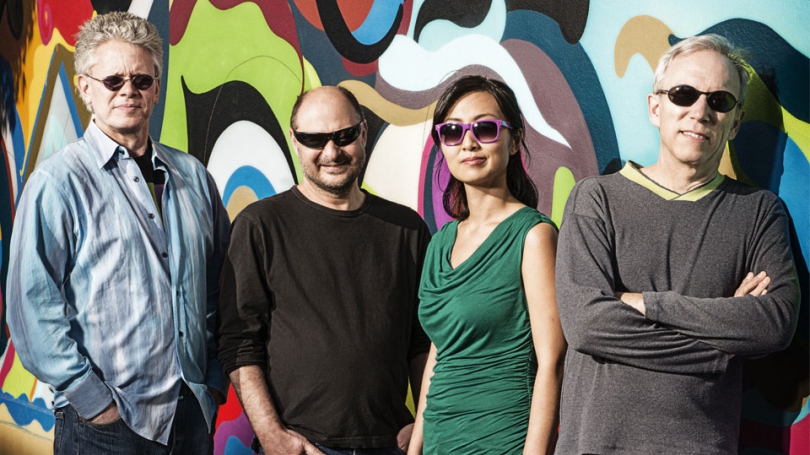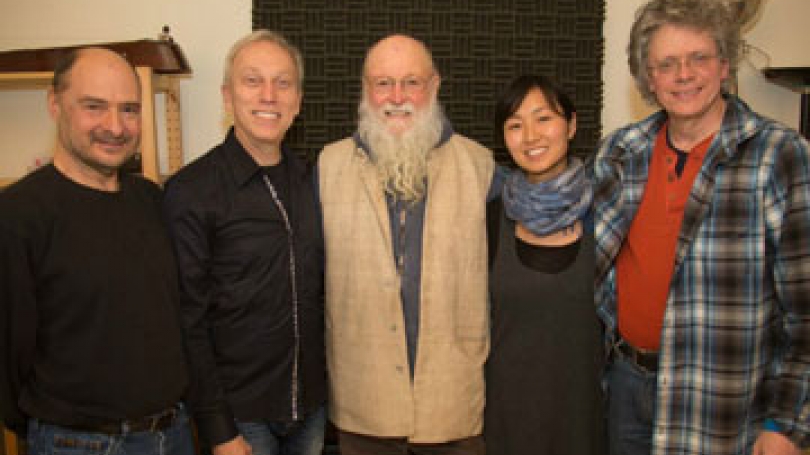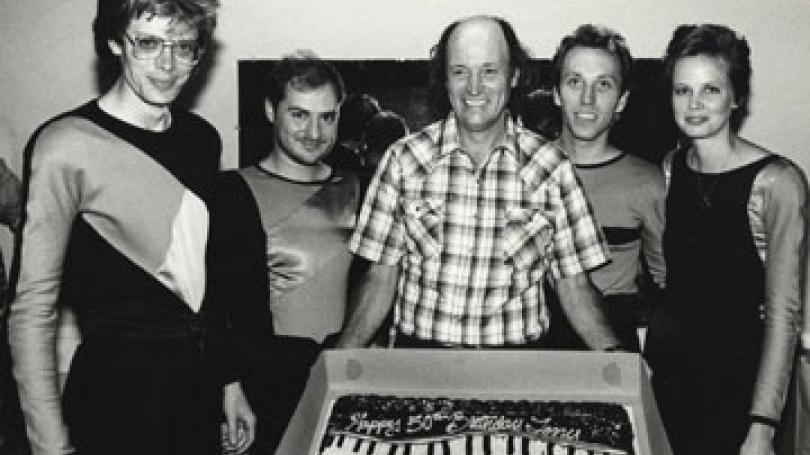Classical with a Twist: The Revolutionary Sound of the Kronos Quartet
An iconoclastic classical group with appeal for non-classical ears.
Since 1973, the Kronos Quartet has challenged the mainstream conception of classical music. Formed by violinist David Harrington with the mission of revolutionizing the way we experience a string quartet, the Kronos Quartet has become one of the most influential and well-known string ensembles of today. Their musical repertoire includes pieces by famous classical composers, covers of rock songs, and nearly everything in between.
Listening to recordings of the Kronos Quartet, I could immediately tell that they are no ordinary musical ensemble. Although the instruments they play are classical in construction, their performances bring a new meaning to the genre. While I am not generally a classical music fan, I actually enjoyed listening to the Kronos Quartet. To me, they create a sound that anyone could engage with. So I put my theory to the test: I asked fellow non-classical music listeners at Dartmouth what they thought of the Kronos Quartet.
Sophie Kylander '22 played the cello growing up, but was never interested in listening to classical music on her own time. However, after I showed her a video of the Kronos Quartet's performance of Jimi Hendrix's "House of the Rising Sun" and Terry Riley's "One Earth, One People, One Love," she began to reconsider. Sophie said that she tends to dislike classical music because she thinks that the sounds blend together in a boring way. However, listening to the Kronos Quartet, she remarked that, "All of the instruments are doing their own thing, but in a very complementary and cohesive way. The individual sounds don't get blurred together." She also liked that the group covers popular music outside of the classical realm, noting that, "You can still recognize it as the song that it is, but it comes off as very different. Covering the song with a string quartet takes it to a different place and gives it a new meaning and feeling."
Tori Bergstein '22 has a similar musical background. She used to play violin, but was never a huge classical music fan herself. However, Tori believes that the Kronos Quartet can appeal to all kinds of music fans, stating that, "It's a unique sound for sure. I think non-classical song listeners would enjoy listening to the Kronos Quartet, too. The group appeals to music fans who can appreciate the technique of a string quartet but may prefer to listen to other genres of music."
Izzy Calihan '22 was also intrigued by the Kronos Quartet. Although she said that she usually finds it difficult to connect with music without lyrics, she found the ensemble's performance to be very compelling. "The music has a very cinematic ambiance to it," Izzy said. "It's an interesting way to introduce the classical medium to non-classical listeners in a way that feels relevant." She believes that even classical music skeptics may be surprised by their reaction to the Kronos Quartet. "I think that it is the kind of thing that people can try and might really like" Izzy said.
I, like the peers I spoke with, was amazed and delighted by The Kronos Quartet. Something that stuck with me is the group's malleability—how they are able to seamlessly perform pieces of all different styles and moods. And after watching an interview with the group, I was able to understand how they are able to adapt with such ease and flexibility: intense listening. In a video for The New York Times, Sunny Yang, the group's cellist, remarked, "My part cannot exist without the other three parts...everything affects one another." David Harrington followed up, noting that their music is like "a dinner conversation that's just a perfect conversation." The Kronos Quartet is famous for breaking down boundaries of the classical genre, but behind that characteristic lies a key element to their success: their commitment to the cohesion of the group, and their shared mission of revolutionizing classical music.
For their upcoming show at the Hop, the Kronos Quartet will be playing music composed for them by Terry Riley, performing alongside Riley and his son, in celebration of the composer's 85th birthday. Riley, a musical rebel in his own right, first collaborated with the Kronos Quartet in the '70s. In 2002, Riley composed an album for the ensemble titled"Sun Beams," a collaboration with NASA meant to represent the symbiotic relationship between humans and the solar system. The music features plasma ray recordings, and redefines the boundaries of sound—challenging our misconception of a silent solar system and even pushing the confines of the saying "the skys the limit."
So, whether you are a classical music aficionado or a skeptic, consider going to see the Kronos Quartet at the Hop on January 23. With their impeccable musical execution and rebellious spirit, the Kronos Quartet is a sight to see. And their collaboration with Terry Riley places them in another realm—literally. So buy a ticket and give them a try. And who knows? You might just be surprised. I know I was.


